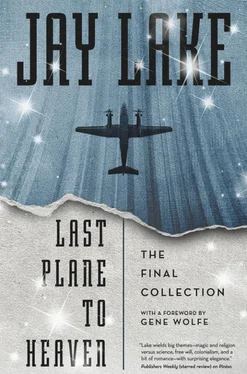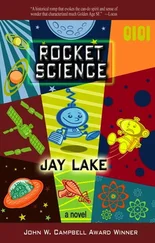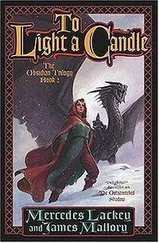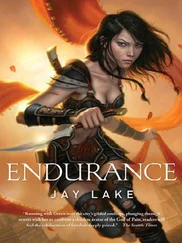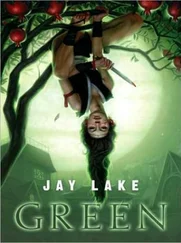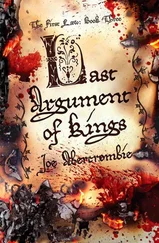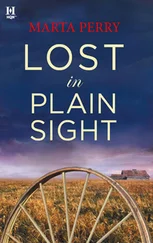The worst thing is that chemotherapy robs you of your mind. You lose the ability to focus properly, to create, then to consume. In time you are reduced to watching reruns of old shows on Netflix streaming, because you can process nothing new. You repeat yourself when you speak at all. You feel desperation.
Cancer has covered over your life, a blanket damp with sweat and blood. You are tired beyond measure, like the day after a bad flu combined with the worst hangover you have ever had, and it does not end. Day after day, week after week, month after month, alone with your increasingly muddled thoughts and the whispered gospels of cancer being recited with every beat of your heart and every momentary flow of your blood.
“Memento mori,” it tells you. “Respice post te! Hominem te esse memento!”
“Remember that you will die. Look behind you! Remember that you are only human!”
Death becomes a kind of friend. It rides on your shoulder like a carrion crow. This skeletal bird remains as invisible to the people around you as your tumor ever was, but it affects them just as much. You are branded by its talons, blinded by the peck of its beak, deafened by its silent screeches, but this bird and you become closer than school chums, closer than lovers.
In time it grows into a sort of comfort. One way or another, this will all end. The story will go on, and be seen as a tragedy by some. But the promise of chemo is twofold. In death’s own language it whispers to you that you might survive, or that you might come to an end. That far shore which surgery showed you unremembered glides past the sinking raft of your suffering. You can see all too well its towering black cliffs and crumbling ravines.
Someday, probably someday soon, you will go home to that place you’ve never been before.
v: I know that cancer is my fate and my friend and my boon companion. Whatever becomes of me, cancer has remade my life as surely as the forge remakes the sword, as certainly as rain and sun remake the seed. Even in dying, I am reborn.
There is no devil mocking you. God didn’t give you cancer to punish you. Colon cancer has come to you through a combination of losing the genetic lottery, cosmic rays, and perhaps too much bacon in your younger days.
Coming out of chemo finally, you know these things. Your life has been stripped down and annealed. Some friends have drifted away out of fear or a sense of frustrated helplessness. Your spouse might have left you in the face of the disease. That happens more often than even oncologists want to admit. Your kids cry because they’re afraid you’re leaving them soon. Your parents’ eyes are haunted by this potential reversal of the natural order of birth and death among the generations.
Still, you are alive today.
When a Christian friend in mortal fear for your soul begs you to get right with God before the disease claims you, you want to tell him you have already found another faith. You believe in the end of all things, and though it is bitterly disappointing to face that far shore, you aren’t so frightened as you once were. Death is no longer abstract. It’s now a personal companion. The bird on your shoulder stays with you, and you want to share that with your Christian friend, but this is not a faith for which you can proselytize.
Cancer, like combat, is the Problem of Evil on the hoof. You have met the enemy and he is yourself. Your tumor children may yet claim you, but now you have a dark sort of faith to guide you through these, your darkest hours.
You still dream of that far shore and the blankness that will keep you from ever seeing it. That journey once made will never be remembered except in the echoes you leave behind in other people’s lives.
There are no atheists in the oncology unit. Only the catechism of cancer, and the difficult comfort it brings even amid the worst of times.
Once upon a time, I read a book.
It was on a college roommate’s shelf around 1984 or 1985. I picked the paperback up in a moment of careless boredom, sat down to idly turn a few pages, and was hooked forever. On the author, on the language, on the notion that fiction could be joyous, transcendent, and substantial. That novel was quite literally why I became a writer.
The book was Shadow of the Torturer, and the author was Gene Wolfe.
* * *
Once upon a time, I sold a story.
It was one of my first major market invitations. I was thrilled to send the manuscript to Peter Crowther of PS Publishing. The acceptance put me over the moon. Then the signature sheets for Postscripts issue one came around in the mail. This was one of the first times I’d ever had to work my way through a stack of a thousand loose papers. And the other names on the page. Oh, my. A who’s who of American genre fiction, from Ray Bradbury to Joyce Carol Oates and beyond. And some newcomer named Jay Lake.
The last name eventually to be signed on the page was that of my favorite author, Gene Wolfe.
* * *
Once upon a time, I went to an awards ceremony.
It was the Locus Awards in 2007 in Seattle. They were also holding an induction ceremony at the Science Fiction Hall of Fame. I was wandering about in the EMP building poking at things when I realized that one of the inductees had entered the hall early, presumably to rest his weary feet. I approached to congratulate him when he broke into a huge smile, turned to his wife, and said, “Rosemary, do you know who this is?”
I literally looked over my shoulder to see who it was that Gene Wolfe was so pleased to see. There was no one present but me.
* * *
Once upon a time, I contracted a fatal disease.
I am dying of metastatic colon cancer. Chances are very good that by the time these words reach print I will either be on my deathbed or in my grave. I don’t write anymore. A career that was first born in the 1980s as the merest dream, and blossomed in the 2000s after years of diligent effort, was finally stopped by a small mutation and some clusters of runaway cells that wouldn’t fill a cereal bowl.
Putting together my final collection, I was discussing with John Pitts who I might ask to write the introduction. We bandied about various names of people I liked and admired. John asked me who I would have if I could have any writer.
My answer of course was Gene Wolfe.
When I wrote him to very politely inquire of his interest, his response was instant and enthusiastic.
So I have come full circle, from following Severian the Torturer through the distant future past of Urth, to putting the finishing touches on a manuscript introduced by the man who introduced me to the idea of what writing could ever be.
My debts to the people in this field are immense and unredeemable. So many have helped me. So many have given me a hand. So many have given me the literary equivalent of a good thrashing when I needed it.
But my gratitude to the man who is almost literally my patron saint for helping me introduce this final collection to you knows no bounds. Neither does my gratitude to you for reading it.
I love you all. It has been a real privilege to know you.
Jay Lake Portland, OR
Mainspring
Escapement
Pinion
Green
Endurance
Kalimpura
Last Plane to Heaven

Jay Lake was a prolific writer of science fiction and fantasy, as well as an award-winning editor, a popular raconteur and toastmaster, and an excellent teacher at the many writers’ workshops he attended. His novels included Tor’s publications Mainspring, Escapement, and Pinion, and the trilogy of novels in his Green cycle— Green, Endurance, and Kalimpura . Lake was nominated multiple times for the Hugo Award, the Nebula Award, and the World Fantasy Award. He won the John W. Campbell Award for best new writer in 2004, the year after his first professional stories were published. In 2008, Jay Lake was diagnosed with colon cancer, and in the years after, he became known outside the SF genre as a powerful and brutally honest blogger about the progression of his disease. Jay Lake died on June 1, 2014, three months before the publication of this collection.
Читать дальше
